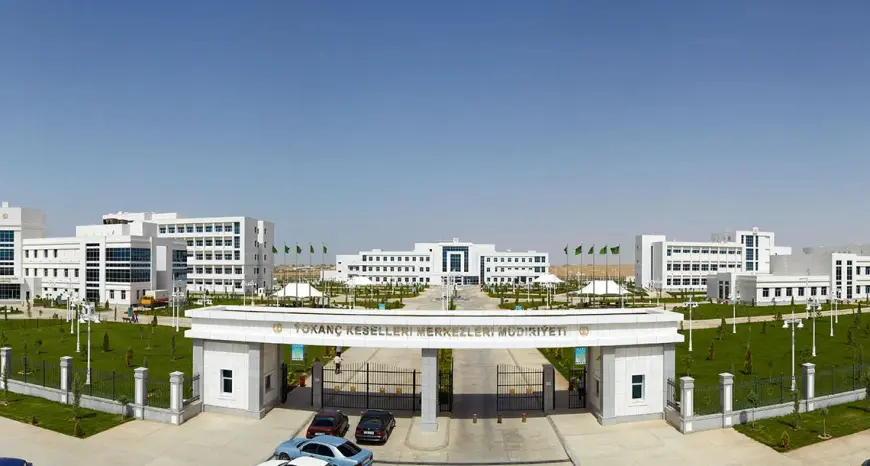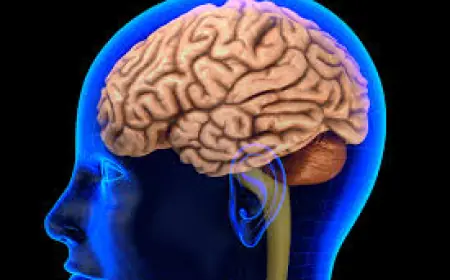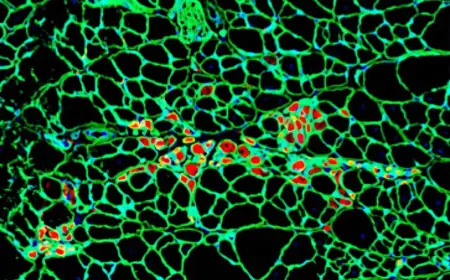Currently, extensive measures are being implemented in our country to prevent infectious diseases

Important measures are being carried out to protect the territory of our country from dangerous infectious diseases and to prevent their spread. Accordingly, the operation of sanitary-quarantine units at all air, road, and railway border checkpoints of Turkmenistan has been improved, and control-quarantine points have been equipped with modern devices. As a result, our beloved Homeland is currently recognized as one of the countries in the world where dangerous infectious diseases have not spread.
To prevent diseases and increase the population’s resistance to illnesses, preventive vaccines against infectious diseases are procured at the state’s expense and provided to our citizens free of charge.
The progress and achievements in disease prevention and eradication are internationally recognized. This is evidenced by international certificates, awards, and other official documents received by our country. For example:
-
In 2000, an international certificate on the eradication of infectious skin disease (dracunculiasis),
-
In 2002, a certificate on the eradication of poliomyelitis,
-
In 2016, a certificate from the World Health Organization on the elimination of measles and rubella in the European region.
Fundamental reforms in the healthcare system
During the Renaissance era of the new epoch of the Independent State, medical institutions have been consistently constructed and put into operation in our country for the benefit of the population. Among them, the management of the Infectious Diseases Centers, opened in Ashgabat in 2010 with the personal participation of the Hero Arkadag, deserves special mention.
This management includes:
-
The Central Dermatovenereology Hospital,
-
The Tuberculosis Treatment and Prevention Center,
-
The National AIDS Prevention Center,
-
The Infectious Diseases Treatment and Prevention Center,
-
The Centralized Laboratory, and
-
The Blood Center.
Additionally, infectious disease hospitals meeting global standards have been opened in the regions and made available to serve the population.
The primary goal is disease prevention
The main goal of all healthcare institutions operating within this center is to prevent infectious diseases. In our independent and permanently neutral country, human health and a healthy lifestyle are regarded as the fundamental guarantee of sustainable societal development and individual well-being.
Under the wise leadership of our respected President, efforts to protect the health of the population, prolong human life, and establish healthy lifestyle norms in society are consistent and systematic. These efforts are distinguished by high indicators and have become a reliable proof of international cooperation.
30 years of success — the “Health” State Program
Currently, the 30th anniversary of the “Health” State Program is being celebrated, which is a clear evidence of extensive reforms implemented in this field.
Departments of the Turkmen State Medical University continue to provide education at a high level.
Infectious Diseases Treatment and Prevention Center
This center operates round the clock, where patients are diagnosed and directed to relevant departments for treatment and consultation. The following departments operate here:
-
Infectious intestinal diseases in children and adults,
-
Viral hepatitis,
-
Airborne infectious diseases,
-
Angina,
-
Acute respiratory infections,
-
Especially dangerous infectious diseases.
Patients undergo all necessary examinations and receive appropriate treatment. The treatment departments include specialized intensive care units for severely ill patients. Bronchoscopy, ECG, ultrasound, X-ray, colonoscopy, and other examinations are conducted in radiology and functional diagnostic departments.
Innovative approaches in hepatitis treatment
In recent years, great progress has been made in treating parenteral hepatitis. Based on joint financing agreements with the United Nations Development Programme, the latest medicines are used to treat chronic viral hepatitis B and C. These measures are of great importance in treating patients and preventing irreversible complications.
Blood Center
The Blood Center of the Infectious Diseases Centers administration carries out important activities such as developing blood donation, improving the qualifications of healthcare workers, and introducing innovative technologies into medicine.
In cooperation with leading global companies, the preparation, storage, and use of blood and its components are conducted at a modern level.
Tuberculosis Treatment and Prevention Center
This center diagnoses and treats not only various forms of tuberculosis but also other concomitant diseases. In the admission and consultation departments, narrow-profile specialists such as phthisiatrists, pediatricians, ophthalmologists, otolaryngologists, traumatologists, narcologists, obstetrician-gynecologists, urologists, and therapists work.
Dermatovenereology and cosmetology services
The range of cosmetic services has been expanded at the Central Dermatovenereology Hospital. Cosmetic rooms are equipped with:
-
Cosmetic combiner,
-
Carbon dioxide laser,
-
Electrocoagulator,
-
Fractional photodermolysis laser devices.
Procedures against skin aging, removal of sebaceous adenomas, seborrheic keratosis, warts, hyperpigmentation are performed here. The dermatology department treats purulent skin diseases, allergic and viral dermatoses, collagenoses, psoriasis, vasculitis, leishmaniasis, and other diseases. Infectious skin diseases are diagnosed and treated in the mycology department.
HIV/AIDS prevention efforts
The National AIDS Prevention Center cooperates with various state bodies, working to strengthen public health, prevent HIV infection, and improve workforce capacity.
Annaguly Rejepov
Chief Director of the Infectious Diseases Centers Administration



























